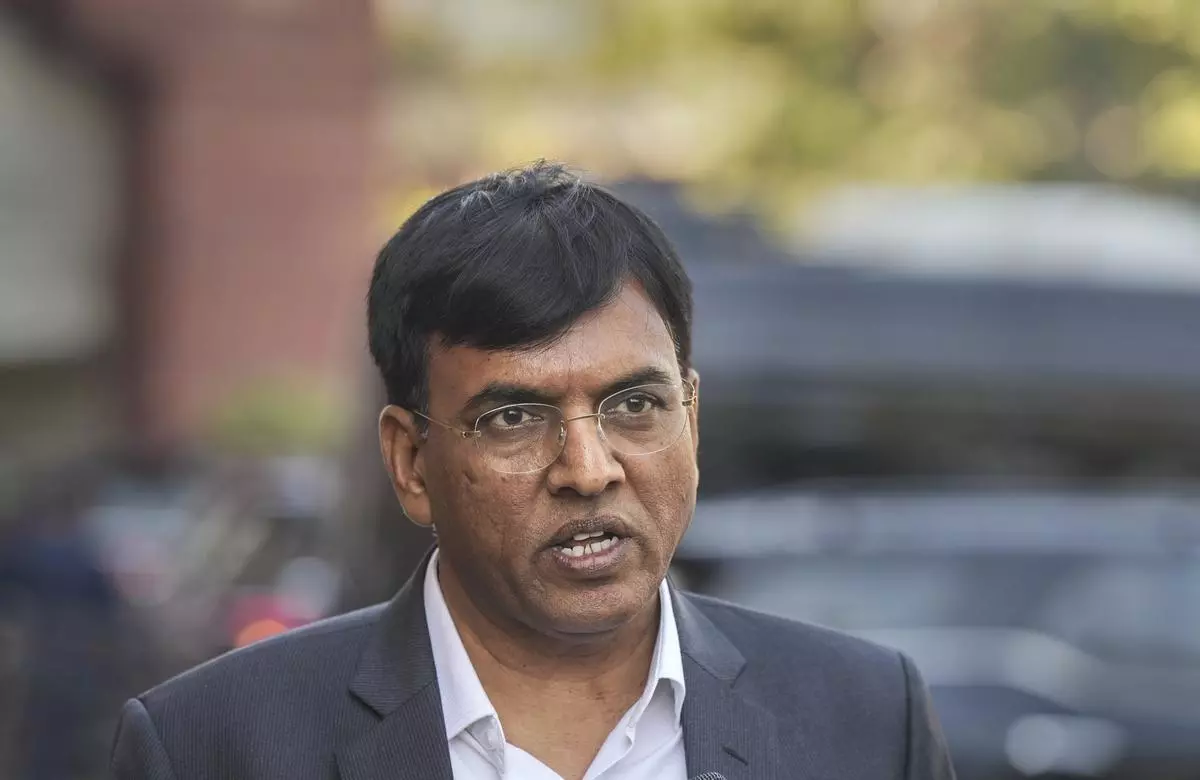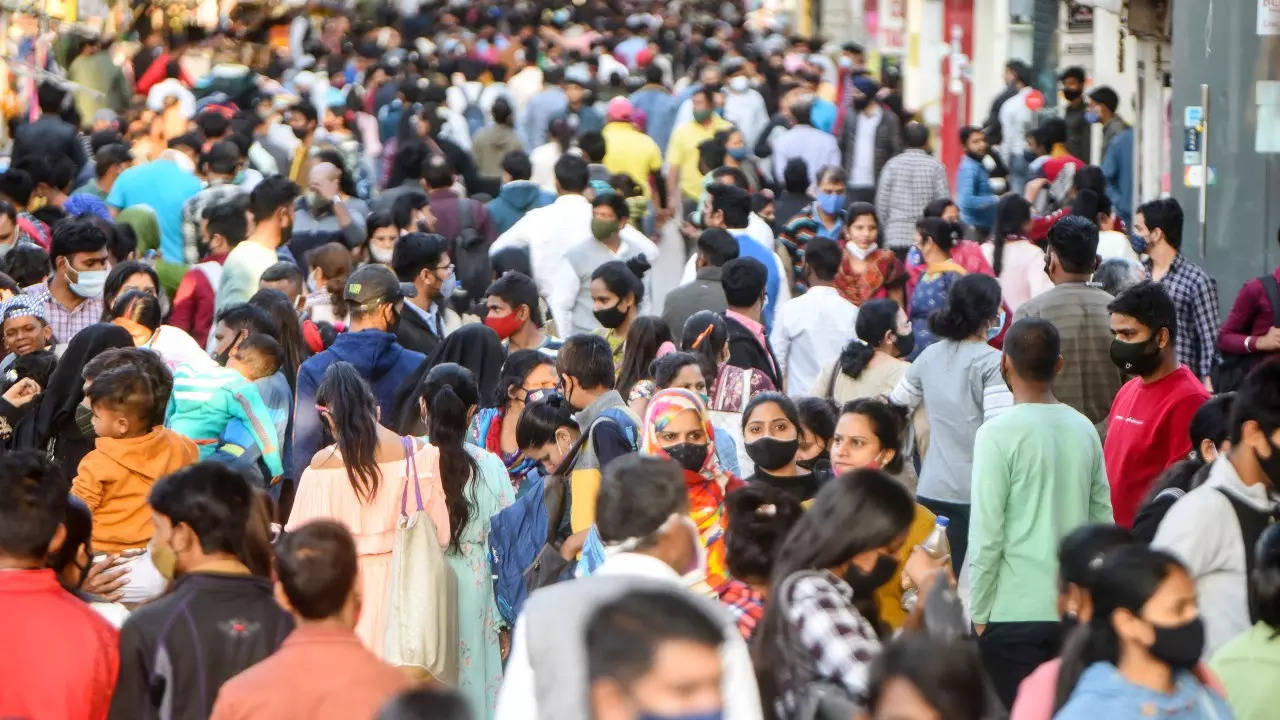COVID-19: Centre asks states to increase genome sequencing amid rise in COVID-19 cases in US-CHINA

As the main number of COVID-19 cases in China, Japan, the United States, Korea, and Brazil has increased, the Center has asked states and also union territories to increase genome sequencing of positive samples mainly.
The Union Health Secretary, Rajesh Bhushan, has written to all of the Chief Secretaries and Secretaries of Health of the states and union territories. According to Mr. Bhushan, this will allow them to quickly identify any newer variants that may be present in the country. He claimed that doing so would make implementing necessary public health measures easier.
He asked all states to ensure that, if at all possible, samples from all positive cases are sent to the current designated Genome Sequencing Laboratories on a daily basis.
According to the Secretary, India has been successful in limiting the spread of the COVID-19 virus due to a five-pronged strategy of testing, tracking, treating, immunising, and adhering to COVID appropriate behaviour.
COVID-19, he claims, continues to be a threat to public health around the world, with an estimated 35 lakh cases reported each week. Each week, approximately 1200 cases are reported in India.
According to official sources, Union Health Minister Mansukh Mandaviya will assess the pandemic situation on Wednesday, following a recent spike in Covid-19 cases in Japan, South Korea, Brazil, China, and the United States.
According to them, at 11.30 a.m. on Wednesday, the minister will review the Covid-19 situation while keeping the global scenario in mind.
Earlier on Tuesday, the main Health Ministry urged all states and union territories to increase whole genome sequencing of main positive samples in order to keep track of all newer variants.
In a letter to states and UTs, and Union Health Secretary Rajesh Bhushan stated that such an exercise will allow for the timely detection of any newer variants circulating in the country and will facilitate the implementation of necessary public health measures.
He emphasised that India has also been successful in limiting the current spread of the coronavirus and is seeing approximately 1,200 cases per week as a result of its focus on the five-pronged strategy of test-track-treat-vaccination and adherence to Covid-appropriate behaviour.
COVID-19 remains a public health challenge around the world, according to Bhushan, with approximately 35 lakh cases reported weekly.
“Given the sudden increase in cases seen in China, Brazil, the Republic of Korea, Japan, and the United States, it is critical to ramp up whole genome sequencing of positive case samples to track variants through the Indian SARS-CoV-2 Genomics Consortium (INSACOG) network,” he said.

“All states are requested to ensure that all samples of all positive cases are sent, as often as possible, on a daily basis, to the designated INSACOG Genome Laboratories that are mapped to states and UTs,” he continued.
Following an unexpected spike in Covid-19 cases in Japan, South Korea, Brazil, China, and the United States, the central government urged all states and union territories on Tuesday to increase whole genome sequencing of all positive samples in order to keep track of emerging variants.
In a letter to states and UTs, and Union Health Secretary Rajesh Bhushan stated that such an exercise will allow for the timely detection of any newer variants circulating in the country and will facilitate the implementation of necessary public health measures.
He emphasised that India has also been successful in limiting the main spread of the recent coronavirus and is seeing approximately 1,200 cases per week as a result of its focus on the five-pronged strategy of test-track-treat-vaccination and adherence to Covid-appropriate behaviour.
According to Bhushan, the Covid-19 public health challenge is still present around the world, with approximately 35 lakh cases reported each week.
He also mentioned the ministry’s operational guidelines for the updated surveillance strategy in light of COVID-19, which were released in June of this year, in his letter. It recommends early detection, isolation, testing, and prompt management of suspected and confirmed cases to find and stop the spread of new SARS-CoV-2 variants.
“As a result, it is critical to monitor the trends of existing variants,” he said. “Given the sudden increase in cases seen in China, Brazil, the Republic of Korea, Japan, and the United States, it is critical to ramp up whole genome sequencing of positive case samples to track variants through the Indian SARS-CoV-2 Genomics Consortium (INSACOG) network,” he said.
Given the increase in positive cases, whole-genome sequencing of positive case samples is critical for tracking variants through the Indian Sars Cov2 Genomics Consortium (INSACOG) network. “Such an main exercise will enable timely detection of newer variants, if any,” Health Secretary Rajesh Bhushan wrote in a letter to state governments on Tuesday.
Since March 2020, India has reported approximately 1,200 cases per week, for a total of 4.4 crore for COVID-19. At the moment, there are approximately 3,500 active infections.
“All states are requested to ensure that all samples of all positive cases are sent, as often as possible, on a daily basis, to the designated INSACOG Genome Laboratories that are mapped to states and UTs,” he continued.

According to media reports, the removal of curbs in China has resulted in an increase in infections. Despite China’s official numbers remaining low, there appears to be a race for hospital beds and a shortage of critical medications at pharmacies. There have been two reported deaths in the country since December 3. Over the three years since COVID-19, only 5,200 people have been officially killed in China.
Wu Zonyu, a well-known epidemiologist in China, has predicted two more spikes in cases due to increased travel in mid-January and February. Despite the fact that 90% of the population has received vaccinations, less than half of Chinese adults over the age of 80 have received the triple vaccination. According to some reports, COVID-19 will kill nearly a million people in China in the coming days.
The country is fully prepared to deal with the COVID-19 outbreak.
According to Union Minister Jyotiraditya Scindia, the country is fully prepared to deal with the coronavirus outbreak. In the aftermath of rising coronavirus infections in China and other countries, the government is taking a number of steps, including random testing of arriving international passengers, to prevent the spread of infections. Scindia, who is in charge of the civil aviation and steel ministries, asserted that the country is fully prepared to deal with the coronavirus situation.

The Pradhan Mantri Jan Arogya Yojana (PM-JAY) programme of Ayushman Bharat assists 10.74 crore poor and vulnerable families. Secondary and tertiary care hospitalisation will benefit approximately 50 crore people. Over 28,800 public and private hospitals have been accredited, and 17.6 crore Ayushman Cards have been issued, according to the minister.
Prior to 2014, the country had fewer than 400 medical colleges, and more than 200 new medical colleges have been built in the last eight years, according to him.
edited and proofread by nikita sharma




